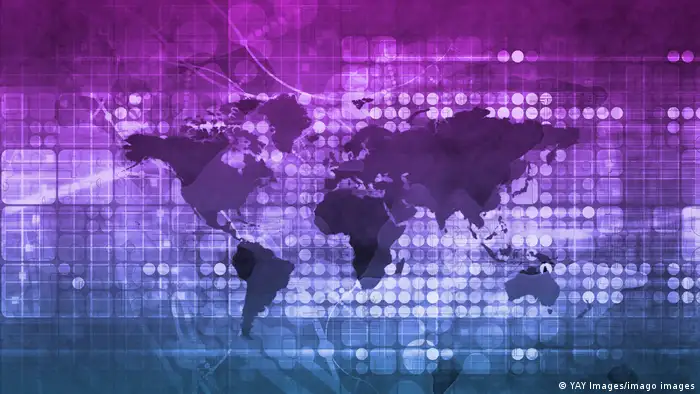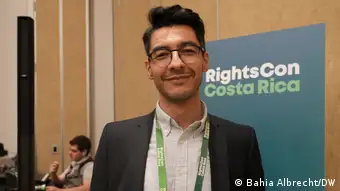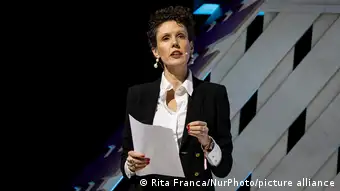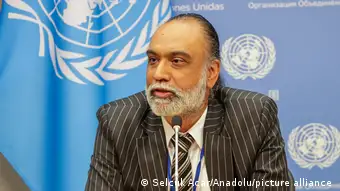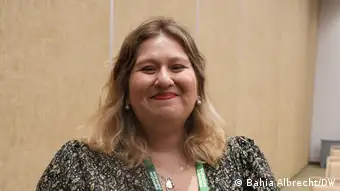INTRODUCTION
What means a fragmented Internet for us?
Fragmented means split – but what does that mean for freedom of expression and internet freedom?
Fragmented means split– but what does that mean in practice?
To describe the Internet as fragmented is perhaps misleading, because the Internet is not in fact a single network: it is a blend of various networks and autonomous systems that communicate with each other. From this perspective, it’s ironic that the Internet has always been to some extent fragmented.
The key feature of an open Internet is that all these different networks and independent systems are able to interact with each other across digital and geographic boundaries, so that every user can access them all. The fundamental idea of the Internet has always been its openness and accessibility for everyone. Javier Pallero, an Internet activist and former Policy Director at Access Now, emphasizes that our most urgent step now is “to protect the current global interoperable technical model that we have, because the baseline for all communication needs to be free and interoperable.”
Interoperability is the keyword. These systems “speak a common language” in the form of Internet protocols and unique identifiers, which are the IP addresses and domain names. These are the two structural fundaments of a connected Internet. Provided that these universally accepted standards are still used, the Internet is not technically fragmented.
Not only a question of infrastructure but policy too
Internet fragmentation is “partly an infrastructure question, and partly a question of perceived and lived experiences,” argues Denmark’s Tech ambassador Anne Marie Engtoft. She adds: “When the Internet first went live in 1992, the idea was that it could connect us all regardless of who and where we are. The initial models were based on bottom-up distribution, not led by traditional power politics. Now we can see that the Internet has been co-opted, or at least influenced by real world dynamics.”
The current state of the Internet reflects a fragmented world order. According to the Brookings Institution, a US think tank, today’s Internet is “an artifact of a time in which global cooperation seemed reasonable, even inevitable.” While the digital world has never been autonomous, nor completely detached from political and geographical boundaries, it has never yet come under the exclusive political or economic control of specific actors. Nonetheless, recent years have witnessed a noticeable shift. The surge in nationalism coupled with rapid technological advancements has reshaped Internet politics. States and corporations have adopted approaches aimed at constraining global information flows. Across the world, differences in the accessibility, transmission, and reception of information online have arisen due to policies enacted by governments and businesses alike.
To counteract this evolving landscape and adapt to rapid technological progress, UN Secretary-General Antonio Guterres called for a Global Digital Compact (GDC) in 2021, a digital governance framework whose primary objective is to foster an inclusive, open, and secure digital sphere. In 2022, the UN Secretary-General identified “avoiding Internet fragmentation” as one of the GDC’s eight priority issues, given that we all need online access for so many aspects of our daily lives. In an interview with DW Akademie, the UN Tech envoy Amandeep Singh Gill emphasized the increased reliance on the Internet globally, “from economic activity and the growth of the digital economy, to social connectivity.”
Levels of Internet fragmentation
In summary, we should understand that there are three different levels of fragmentation:
- Technical fragmentation: Changes to the underlying infrastructure that impede the various systems’ ability to fully interoperate and exchange data packets, in other words for the Internet to function consistently.
- Governmental fragmentation: Government policies and actions that constrain or prevent certain uses of the Internet to create, distribute, or access information resources.
- Commercial fragmentation, where business practices do the same.
Recently, the Internet Governance Forum has established a Policy Network on Internet Fragmentation (PN-IF), which is developing a framework that captures a range of fragmentation concerns, including a focus on the technical and governmental layer of analysis, but also fragmentation as it relates to user experience. One example of this is the rise of regional Internet service providers that only offer access to a limited portion of the Internet, or make users pay more for data use.
What are the consequences?
One major worrying potential consequence of a fragmented Internet is that it could limit free speech and the free flow of information across borders.
While China is known for having one of the most restrictive and heavily censored Internet environments in the world, many other countries contribute to Internet fragmentation. For example, when a government bans applications, most famously TikTok, there is an imbalance of user experiences worldwide. And in regard to media landscapes, Russia is creating a media ecosystem within its closed Internet, which serves as a role model to other countries like Sudan.
Bruna Martins dos Santos, an Internet governance researcher at the Humboldt Foundation, argues that “we should be especially concerned about the actions that can undermine users’ or citizens’ trust in broader democratic processes.”
In addition to the Internet shutdowns during elections or political unrest in countries like Zimbabwe, Kazakhstan, India, or Ethiopia, there is also an increase in the number of laws restricting online space. In 2018, Uganda implemented a social media tax that required users to pay a fee to access certain social media platforms. Bangladesh passed a controversial new digital security law in the same year. In 2021, the Ecuadorian government passed a law that requires social media companies to register with the government and obtain a license in order to operate in the country. Many critics have argued that such moves could be used to restrict free expression and limit access to certain types of online content.
So, is the Internet fragmented? “Not yet,” says Bruna Martins dos Santos. Let’s make sure it stays that way. Internet is critical infrastructure for freedom of expression and the right to information and, as UN Tech Envoy Gill puts it, “a public good that needs protection”.
You can check out what our experts have to say on the technical, political, and commercial aspects of Internet fragmentation, as well the digital divide and what this all means for media practitioners, here.
- Date 11.12.2023
- Author Bahia Albrecht
- Feedback: Send us your feedback.
- Print Print this page
- Permalink https://p.dw.com/p/4Ztj7
- Date 11.12.2023
- Author Bahia Albrecht
- Send us your feedback.
- Print Print this page
- Permalink https://p.dw.com/p/4Ztj7

